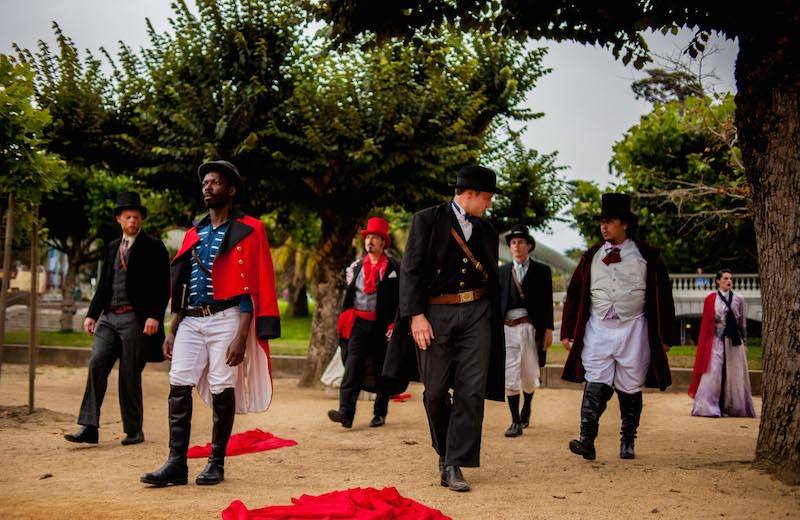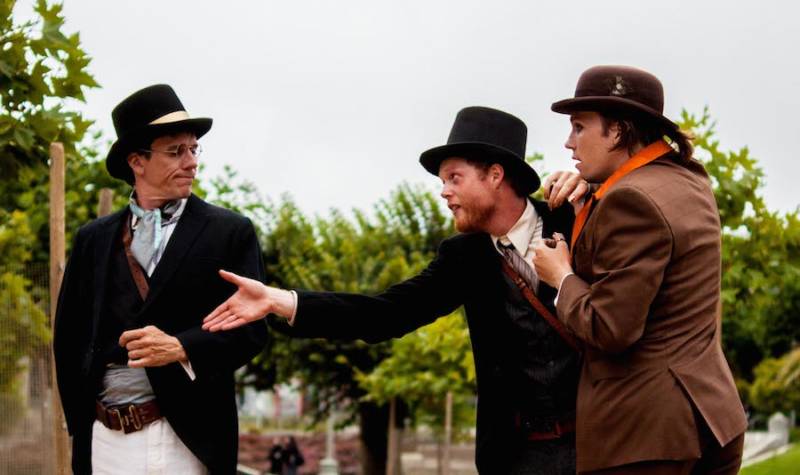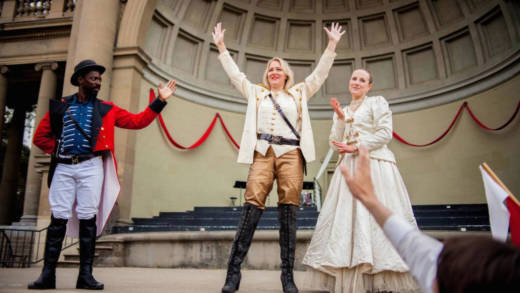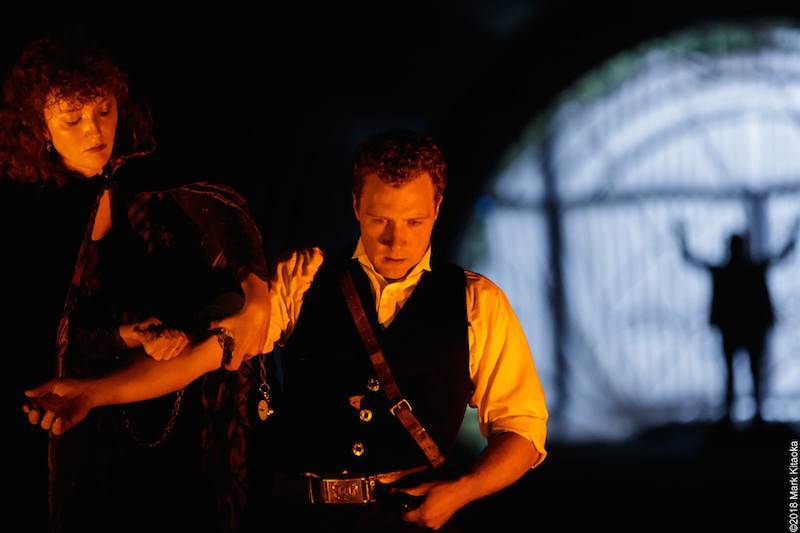In these politically charged times, the impetus to draw parallels with similarly fraught occasions in history becomes an irresistible pastime. This month, it’s We Players’ turn, with a timely adaptation of Shakespeare’s Julius Caesar that recalls the origins of Senate obfuscation and the long struggle to distinguish between political and personal ambition within the various seats of office and leadership.
Set at the music concourse in Golden Gate Park, with its grand bandshell, the gracious Rideout Fountain, and several pedestrian underpasses, the actors’ Gilded-Age top hats and waistcoats (designed by Brooke Jennings and Kathleen Qiu) lend a raffish, robber-baron aesthetic to the production, neatly fusing Old San Francisco to Old Rome.

Frequent proponents of cross-casting, We Players has Libby Oberlin in the role of Caesar, which she plays to the hilt with brash swagger, clad in high boots and breeches and brandishing a riding crop. It is her stance as a woman in power that has turned her conspirators against her, We Players suggests, her self-assuredness mistaken for tyranny. As Caesar, Oberlin helps her conspirators set their case at certain moments—particularly when mocking a soothsayer (Emily Stone) come to warn her (not a good look, as one might say in today’s vernacular). But is such careless ego truly a mark of a tyrant? We Players forces us to consider the spectrum of self-absorption, neither excusing Caesar’s behavior nor explicitly condemning it.
More compact than certain past We Players productions, Caesar Maximus (adapted by Nick Medina and director Ava Roy) practically zooms by in just a couple of hours. The action is limited to just a few locations, all within a brief stroll of each other. The cast, too, is streamlined, with most actors doubling their roles, and several characters serving as composites—such as Chris Steele’s impish Casca (who arrives to the Lupercalia on roller skates) speaking lines to woo Caesar to the Senate House originally intended by Shakespeare to be spoken by Decius Brutus. In effect, it plays like a greatest-hits reel of the play, the minutiae mostly not missed as the San Francisco fog settles in for the evening and blankets are passed out to the audience. (Pro tip: do not neglect to bring your layers.)

The only really disconcerting jolt in the pacing is the swiftness with which Caesar is dispatched to her death. It happens early in the production, before it feels as if enough momentum or acrimony has gathered against her to justify the boldness of the deed. The death itself is curiously bloodless, built up with some neat, slow-motion fighting choreographed by Chris Steele, but leaving the actors in their frozen positions for much too long after. Only Antony’s mellifluous monologue, expertly delivered by Rotimi Agbabiaka, cements the moment with the appropriate solemnity. Agbabiaka anchors Caesar’s funeral scene as well, inciting a too-small mob in a too-large playing area to enact some too-staged violence, setting the stage, as it were, for the eventual downfall of Brutus (Joseph Schommer) and Cassius’ (Hunter Scott MacNair).




